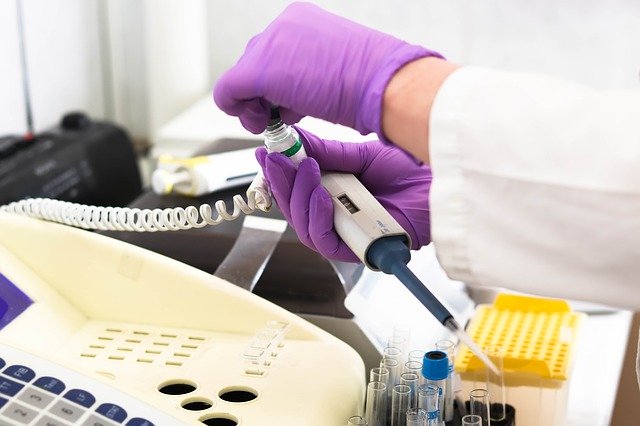The team of scientists from the Netherlands and Germany proved the effectiveness of the papain-like protease' inhibitors (that were previously proven as effective against MERS-CoV and SARS-CoV) against COVID-19 in their new research published in Nature.
SARS-CoV-2 is less lethal, but a lot more contagious, compared with its predecessors (SARS-CoV and MERS-CoV). SARS-CoV-2 is also more effective in fighting the defense mechanisms of the innate immune system.
The key role in depressing the defensive ways of the innate immune system belongs to proteases - the enzymes that cut the proteins in particular sites. The papain-like protease (PLPro) cuts the viral proteins for future replication. The other target of those enzymes are host cells, that take part in the immune response, for example ISG15 protein, which regulates interferon production. The papain-like enzymes of SARS-CoV-1, MERS-CoV, and SARS-CoV-2 are very similar to each other.
It was proven, that the PLPro inhibiting in SARS-CoV-1 blocks the viral replication. The PLPro inhibitors were considered as a therapy for atypical pneumonia, caused by SARS-CoV-1.
In the recent study, the scientists compared the papain-like proteases of the different coronaviruses and found the differences between them. For example, some proteases prefer different substrates, which is related to the structure of the protein binding sites of those enzymes. That correlates with the recent clinical observations, which show the lowering of the interferon immune response to SARS-CoV-2 compared to atypical pneumonia and the common cold.
Despite the differences, the researchers tested if the PLPro inhibitors, which were created as a therapy against SARS-CoV-1, can work against SARS-CoV-2 as well. For the experiment, scientists used GRL-0617 protein, known as the protease inhibitor of SARS-CoV-1, which also doesn't affect the protease of the host. Based on the site structure data, it was predicted that the experiment should be successful.
It turned out, that GRL-0617 blocks the actions of SARS-CoV-2 papain-like protease. In the experiments with cell culture, the viral replication was greatly depressed, while also activating the process of ISG15 binding with the regulatory factor of interferon 3, which regulates the immune response and the other defensive mechanisms. However, GRL-0617 caused no effect on MERS-CoV.
The effectiveness of the papain-like protease inhibitors make scientists optimistic about the discovery of a new quick way of COVID-19 treatment, researchers claim. The advantage of those ways is in their double effect: blocking the viral spread as well activating the host immune system.
